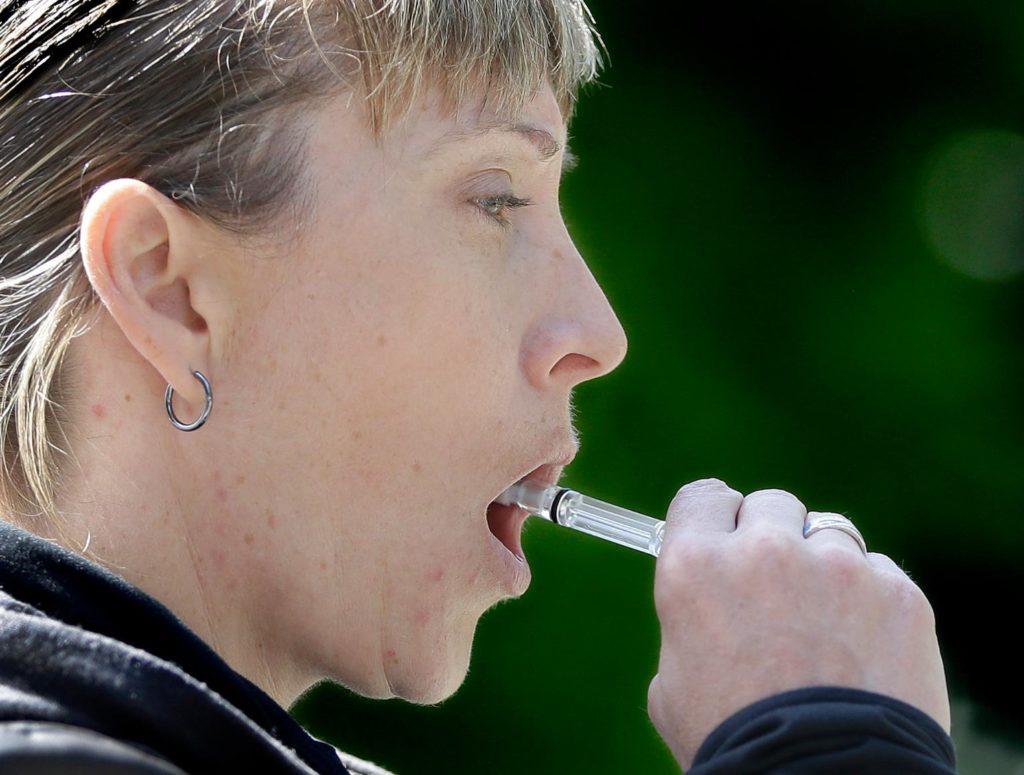A 30-year-old man from Oakland County has big plans for cultivating medical marijuana in Capac.
“Basically to take it out of the basement and make it commercial,” said Matt Roman.
His proposal includes a development of 600,000 to 850,000 square feet on about 60 acres. Roman said he’ll apply for 30 licenses from the state, creating 284 jobs with an average salary of $62,000. He said each license can come with a $5,000 fee to be paid to the municipality annually.
“I’ve just always had an interest in cannabis especially now with the opioid epidemic going on,” Roman said.
While Roman said the development would be a boost to the area, local law aren’t as enthusiastic.
Roman declined to say how much money his idea would take to develop, but said it would come from private sources. He said he has a team of people backing the development, with many experienced growers.
The Capac Village Council has tasked the planning commission with developing a medical marijuana growing and processing ordinance, said John Grzyb, village president.
Grzyb was the lone dissenting vote on the issue, noting he isn’t against medical marijuana, he just doesn’t believe the number of jobs and benefits to the community will come to fruition.
Roman said the development would be good for the community, creating jobs with good wages that couldn’t be moved out of the area. He said his company, King Midas, would have an internal “cannabis college” to train employees in cultivating the plants.
Roman said he hopes to start construction as soon as village and state approval is granted.
He previously practiced law but said his interest in business and the benefits of medical marijuana led him to switch careers.
Roman said the plans would not include a storefront at the facility, which would have its own security. He said state licensing would mean law enforcement would know everything about the facility.
He said fears of criminal incidents happening like they have locally at small grow operations isn’t fair.
“It’s like comparing someone who is making moonshine in the forest versus the Budweiser plant,” Roman said.
He said security would be key.
“This is such a significant investment that we have to protect that investment,” Roman said.
St. Clair County Sheriff Tim Donnellon and Prosecutor Mike Wendling said they hope the village takes time to understand what else a processing facility could bring.
Both noted criminal activity in the area linked to the robbery of backyard medical marijuana operations.
“It’s nothing but trouble for our community,” Donnellon said.
Donnellon said under state statute, firearms are not permitted in those types of facilities, so having unarmed security would be moot.
Wendling also noted the people targeting grow operations — whether it be for the product or the cash — “they’re coming and they’re showing up armed.
“The industry has a propensity for violence.”
Beyond criminal activities, Wendling said the village needs to consider things such as being able to provide other services to a facility of that size.
He said they also need to consider the smell and the impact it may have on current businesses and residents.
“Is anyone else going to go there when you smell marijuana growing?” Wendling said.
Municipalities have to develop ordinances before the state will consider granting licenses in the jurisdiction.
“Once they say yes, it’s over, it’s done,” Wendling said of an ordinance being approved. “So I hope they’re making sure the parameters that their citizens want are met in this initial stage.”
The state started accepting applications for medical marijuana growers, processors, transporters, provisioning centers and safety compliance facilities Dec. 15.
David Harns, spokesman for the state department of licensing and regulatory affairs’ bureau of medical marijuana regulation, said about 60 applications have been filed.
Applicants are not required to have a specific location during the pre-qualification portion of the licensing approval. Each license application comes with a $6,000 price tag that covers background checks and other screenings, Harns said.
He said those granted licenses for large grow operations will also have to pay an annual regulatory assessment of between $10,000 and $57,000.
credit:thetimesherald.com


